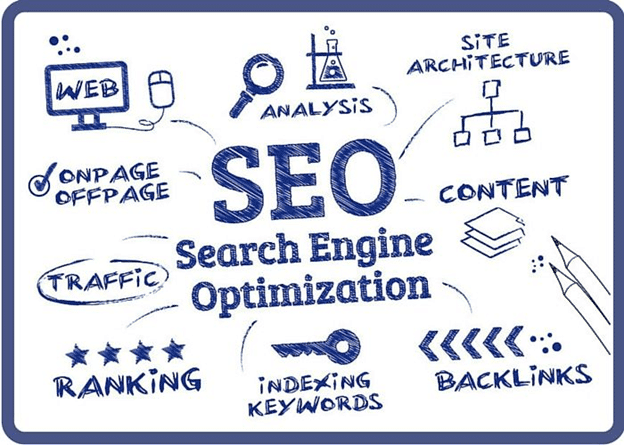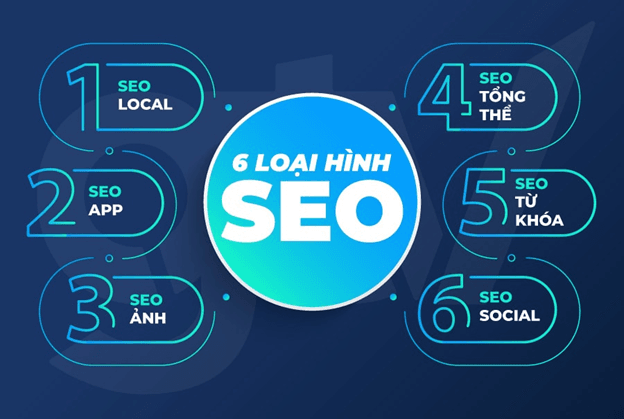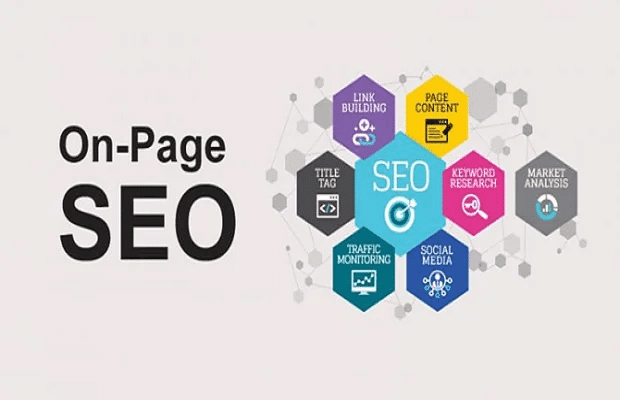What is SEO?
SEO stands for “Search Engine Optimization”. It is the process of optimizing a website to improve its ranking on search engines like Google. SEO optimization helps your website appear higher in natural search results, increasing the potential for significant traffic.

##Benefits of SEO for Your Website
Understanding how SEO works is crucial to applying it effectively to your website. Search engines use complex algorithms to determine which websites will appear at the top of search results. Factors such as content, links, and your website’s structure all influence its ranking on search engines. By optimizing these factors, you can improve your website’s ranking.
The benefits of SEO for your website include:
1.1. Increased Visibility in Search Results: SEO optimization helps your website appear in natural search results, increasing the chances of attracting new visitors and potential business.
1.2. Significant Traffic Boost: With your website ranking high on search engines, users are more likely to click on it. This results in a substantial increase in website traffic and the potential to reach a broader audience.
1.3. Enhanced Credibility and Trust: A high ranking on search engines creates a positive impression, instilling credibility and trust in your business. Users often trust websites appearing in natural search results more than paid advertisements.
1.4. Improved Interaction and Conversions: A prominently featured website on search engines enhances interaction and conversion rates. Users tend to trust and engage more with websites that appear at the top of search results.
1.5. Cost-Efficient Advertising: SEO is a cost-effective method to reach customers. Compared to direct advertising, SEO requires less financial investment and provides long-term benefits for your website.
How SEO Works and Key Terms

To apply SEO effectively, you need to understand how it works and familiarize yourself with key terms. Here are some important terms related to SEO:
2.1. Keywords: Terms or phrases users enter into search engines to find information. Learning and using appropriate keywords in your content can improve your website’s chances of appearing in natural search results.
2.2. On-Page SEO: Optimization activities performed directly on your website to improve its search engine ranking. This includes optimizing content, title tags, meta tags, and other on-page elements. Adhering to on-page SEO guidelines enhances your website’s visibility in natural search results.
2.3. Off-Page SEO: Optimization activities not directly related to your website but can impact its search engine ranking. This includes link building, social media sharing, and other marketing activities. Emphasizing off-page SEO activities helps boost your website’s ranking in natural search results.
2.4. Image SEO: Optimization of images on your website to improve their display in image search results. Using appropriate alt tags and image descriptions can optimize image SEO.
2.5. Video SEO: Optimization of videos on your website or video-sharing platforms like YouTube. Optimizing titles, descriptions, and other factors can improve the visibility of your videos in video search results.
2.6. Map SEO: Optimization of maps on your website and defining your company’s location. Providing accurate geographical information and optimizing other factors can enhance your website’s visibility in local search results.
2.7. Mobile App SEO: Optimization of mobile apps to improve their visibility in search results on mobile devices. With the growth of the mobile industry, mobile app SEO is becoming increasingly important.
Job Opportunities in SEO and Latest Trends
The field of SEO is rapidly growing, offering numerous job opportunities for individuals with knowledge and skills in SEO. With the increasing popularity of the internet and technology, the demand for website optimization and improved online marketing effectiveness is rising. This creates many job opportunities in SEO, including roles such as SEO specialists, SEO engineers, and SEO analysts.
In Vietnam, with the strong development of the online market, many companies are actively seeking employees with the ability to optimize websites and improve their search engine rankings. This requires a deep understanding of SEO and the ability to apply effective SEO methods.
Additionally, in the field of SEO, new trends are emerging. One of the most notable trends in SEO is the integration of Artificial Intelligence (AI) and machine learning. The combination of AI and SEO opens up new possibilities for website optimization and increased visibility on search engines.
Popular Types of SEO

In the field of SEO, there are various popular types of SEO that you should explore for your website. Here are some common types:
4.1. Keyword SEO: This type focuses on optimizing keywords within your website’s content. Learning and using appropriate keywords can improve your website’s chances of appearing in natural search results.
4.2. Image SEO: This type focuses on optimizing images on your website to improve their display in image search results. Using alt tags and suitable image descriptions can optimize image SEO.
4.3. Video SEO: This type focuses on optimizing videos on your website or video-sharing platforms like YouTube. Optimizing titles, descriptions, and other factors can enhance the visibility of your videos in video search results.
4.4. Map SEO: This type focuses on optimizing maps on your website and defining your company’s location. Providing accurate geographical information and optimizing other factors can improve your website’s visibility in local search results.
4.5. Mobile App SEO: This type focuses on optimizing mobile apps to improve their visibility in search results on mobile devices. With the growth of the mobile industry, mobile app SEO is becoming increasingly important.
SEO On-Page and Critical Mindset for Successful Website Optimization

In SEO, two critical concepts are on-page SEO and a critical mindset. These factors determine success in website optimization.
5.1. On-Page SEO: These are optimization activities performed directly on your website to improve its search engine ranking. This includes optimizing content, title tags, meta tags, and other on-page elements. Adhering to on-page SEO guidelines helps improve your website’s visibility in natural search results.
5.2. Critical Mindset: To succeed in website optimization, you need a critical mindset. This includes understanding the principles of SEO, shaping a strategy and optimization plan, monitoring, evaluating, and adjusting results, and continuously improving the effectiveness of website optimization.
Applying on-page SEO and a critical mindset correctly is a crucial part of successful website optimization.
Conclusion
SEO is a method to optimize a website to improve its visibility on search engines and attract significant traffic. Effective application of SEO brings many benefits to your website, including the ability to appear in search results, attract traffic, and enhance credibility and trust for your business.
To succeed in optimizing your website for SEO, you need to understand how SEO works and apply key terms. Additionally, understanding popular types of SEO, job opportunities in the SEO field, and the latest trends is essential.
On-page SEO and a critical mindset are also crucial factors for success in website optimization.












